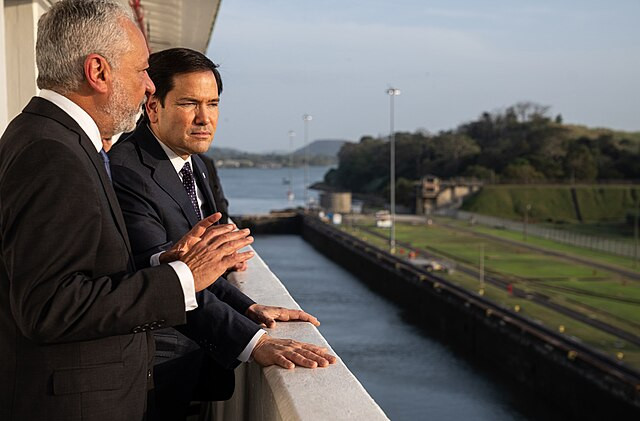China accused the United States of coercion on Friday after Panama decided not to renew a key infrastructure agreement under Beijing's Belt and Road Initiative (BRI). The move follows warnings from the Trump administration that Panama must reduce China's influence over the Panama Canal or face potential retaliation from Washington.
Chinese Foreign Ministry spokesperson Lin Jian criticized what he described as American pressure tactics. China "firmly opposes the U.S. smearing and undermining the Belt and Road cooperation through means of pressure and coercion," Lin said in a briefing. He added that the initiative had brought "fruitful results" to Panama, though he did not provide specific examples.
The Belt and Road Initiative, a flagship foreign policy effort by President Xi Jinping, has financed infrastructure projects worldwide, including roads, railways, and ports. However, concerns over debt sustainability and Beijing's growing influence have sparked controversy. Panama joined the initiative in 2017 but has now chosen to step away, a move widely interpreted as an effort to align more closely with the United States.
Tensions between Panama and Washington escalated after U.S. Secretary of State Marco Rubio warned Panamanian President José Raúl Mulino that his government must curb Chinese influence over the canal. Trump has previously expressed dissatisfaction over the role of Hong Kong-based Hutchison Ports, which operates key facilities at both ends of the waterway. The Panamanian government has launched an audit into the 25-year no-bid contract awarded to Hutchison Ports, potentially opening the door for a rebidding process.
Mulino, however, has pushed back against U.S. pressure, stating that Panama has no intention of renegotiating the canal's ownership. The waterway, which handles roughly 5% of global maritime trade, remains a vital passage for goods traveling between the Atlantic and Pacific Oceans.
On Wednesday, Mulino rejected a U.S. State Department claim that an agreement had been reached allowing American military vessels to transit the canal free of charge. The U.S. statement "was based on a falsity. And that's intolerable," he said.
Rubio responded to Mulino's comments by maintaining that discussions with Panamanian officials had been clear. "I respect very much the fact that Panama has a process of laws and procedures that they need to follow," Rubio said. He also argued that U.S. forces should not have to pay transit fees given America's treaty obligation to protect the canal. "I find it absurd that we would have to pay fees to transit a zone that we are obligated to protect in a time of conflict."
Meanwhile, a prolonged drought has significantly reduced water levels in the canal, forcing authorities to restrict vessel traffic. Trump has blamed these delays for disrupting supply chains but has linked them to China's presence in the region, despite no evidence of Chinese involvement in the water shortages.
China, for its part, urged Panama to resist external interference. "We hope Panama will bear in mind the general picture of the bilateral relationship and the long-term interests of both peoples," Lin said.






